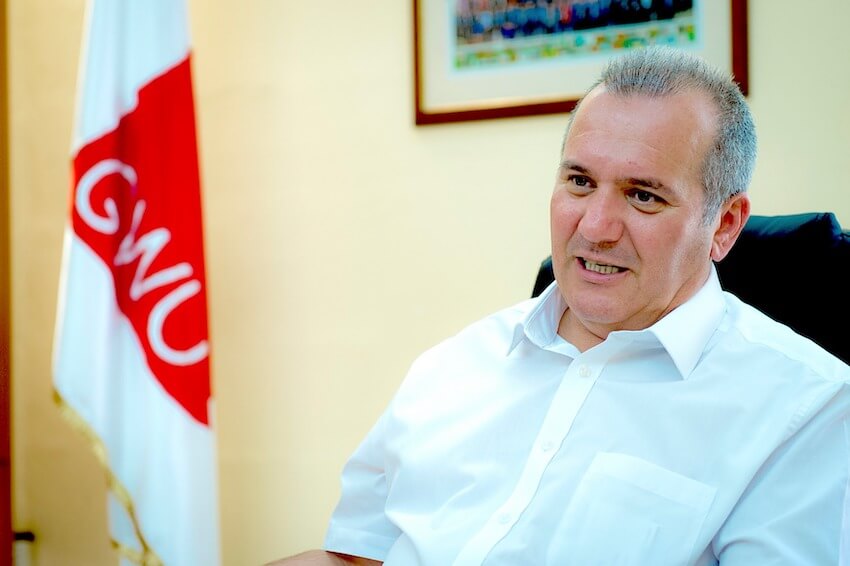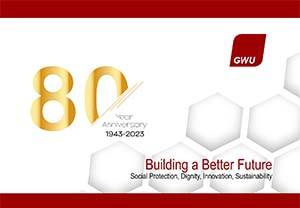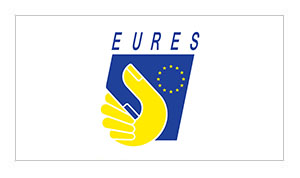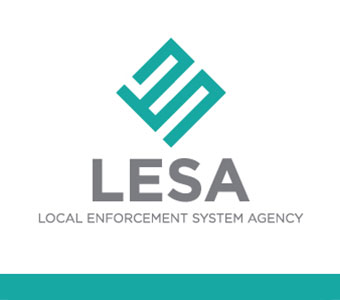As soon as he arrives, as the Maltese say, at the GWU building each morning, you know he’s there…because you hear him. It’s his routine to walk through the offices to greet employees, and he always catches someone’s eye, too… he likes to joke around and make fun in a good-natured way! But as soon as he says even half a word about the unions, he flips like a switch. He starts to argue and explains in detail and above all passionately, to the point… but in such a way that everyone understands and gives an explanation for what he says.
The GWU yesterday and today. Has it changed? And what has become of it?
As GWU, its principles and values have remained the same. It defends the most vulnerable, the people in the lower strata of our society, helps and defends partners, and advances the causes of all workers, both blue and white collar.
GWU has several roles in industrial relations. At the corporate level, GWU chapters advocate for all the concerns and aspirations of members in the workplaces they represent. At the national level, GWU takes an active role in the Malta Council for Economic and Social Development (MCESD) and the Employment Relations Board (ERB) to fulfill our role as a social partner and actively advocate for the improvement of the quality of life of our members and society in general. While we present national policy in the MCESD, we discuss and present proposals to improve labour law in the ERB. As an example, I can mention that 15 days ago we made a proposal for a discussion within MCESD to see what we are going to do concretely in terms of health and safety at work.
It is useless for us to go out after every death and say how sorry we are for that worker. No one, no worker should go to work to earn his daily bread and leave his life there. That can not be. Health and safety must prevail in every workplace and where we are organized (i.e. member of a union) we see it as GWU, but there is a lack of discipline in several workplaces that are not organized (they are not members of a union). We do not have that culture in our country. Part of the lack is due to enforcement, but it is not good to blame only enforcement, because many people, both employees and employers, do not believe in the need for the importance of health and safety at work.
At the European level, GWU plays an important role within the European Trade Union Confederation (ETUC), which is discussing various directives to protect the rights of our workers in the European Union and to include them in all directives. In addition, we work to ensure that the rights of workers are protected and strengthened.
For example, we are currently discussing the directive on platform workers, on governance and transparency in supply chains, we have discussed the directive on the minimum wage and tabled amendments which were later discussed between the Commission and Parliament to protect the interests of Maltese workers. This is only part of the work we do as a team, administration, secretaries, officials and shop stewards. Issues directly related to our workplaces.
In these discussions, despite our small size, we see that the Directive will also apply to Maltese workers in the European framework.
The way GWU works today has changed, it has been modernised, but our principles and values that we have adopted have always remained the same. It has changed to
welcome both the companies among us, as we have expanded the departments to offer more specialised services, and in the European work by having a secretary in charge of the international work to be in constant contact with the outside world. Apart from each secretary participating in the social dialogue at the European level, we have an international secretary who participates in the work of the European Economic and Social Committee. Work that has been done before by GWU, but not on such a large scale.

Here Mr. Bugeja took out a booklet from his bag, and explained that he will always have this booklet with him, in which the beliefs of GWU are written down. In it you will find the philosophy of GWU – why and what GWU is, about workers in society, pensions…
GWU has always been avant-garde in what it does, and we still are. In the sense that we make proposals that, when we present them, are scolded even by those who use them against us, but time will soon prove us right. Like when we talked about the precariat, for example, and now in the case of platform workers. We have been dealing with this issue for two and a half years. Today we have a national norm that regulates this sector and gives rights and dignity to these workers, many of whom come from third countries. GWU has put as much pressure as it could. We even made concrete proposals on how to do it.
At the last congress, GWU made the proposal that every worker should be a member of a union of his or her choice.
What do you mean by that and why are you advocating for it?
It’s a proposal that we put forward. At the time we put it forward, the political parties agreed with it. During that time, we kept advocating for it. We even made a presentation to the MCESD. The goal is not to increase our membership or our income, but to make sure that every worker’s work is be appreciated, dignified and correct. We do this to advance the interests and aspirations of all workers. There are several workers who are disadvantaged and abused. Non-compliance with health and safety regulations in the workplace, not being given what one is entitled to, we see this in various unorganized workplaces. A study conducted years ago showed that thousands of workers refuse to join a union. It is impossible to enforce the laws against employers when there are about 280,000 workers. The only solution is that when you go to work, you automatically join a union of your choice. Today, we work as social partners organized to work with employers in workplaces to increase competitiveness and efficiency, improve the quality of life for individuals, and reduce workplace abuse and accidents. When I compare them to workplaces that are not organized, I inevitably feel the need to urge that everyone become a member of a union. Many disagree with this because both the European Convention and the Maltese Constitution give you the right to freedom of association, which automatically gives you the right not to be a member. The research we have done shows that this is possible as long as it does not lead to compulsory unionization.
It hurts when you see the complaints, and hurts even more when employees tell you that when they were thinking about joining a union, their employer told them that anyone who joined would be fired. We have seen contracts that specifically say you can not join a union. That is blatant abuse. There is a need to change the culture. In the Nordic countries, there is a model where all workers are members and unions have a greater function.
Another example: When we make a collective agreement, we make no distinction between a worker who is a member and one who is not. We believe that the basis should be the value of the work, regardless of who does it. That’s why there are workers who do not join a union but enjoy the same benefits. This is another reason why we want every worker to be a member of a union.
Also in terms of health and safety in the workplace. If you look at the number of accidents in organized and non-organized workplaces, you will see that the number in non-organized workplaces is very high. Not to mention that there is a great need for education and enforcement among both employees and employers.
Are there other sectors you are focusing on?
The same work that we did then to regularize workers in the construction sector, we are doing now in the case of workers in the work platforms. Workers who did not have working conditions, did not receive bonuses, did not have sick leave… nothing, they were not even considered workers. They did not have a single benefit that the law provided. Today, after the pressure we have exerted, the government has presented a law so that all those who do this work can enjoy the labour law. But we will not stop here. Our goal is to include these workers and make a collective agreement for them. Our work is not to stop change in the world of work, but to put a human face on that change. Our goal is to create a world of work where the worker is at the center.
Another area that every Secretary is working on is that of workers in the construction industry. We and the other social partners believe that the value of the wage is linked to the value of the work. This means that every worker should receive the same wage, regardless of the employer. This can be achieved by changing the law so that this right applies to every job and not to every employer. This work must continue in favor of the contractor’s workers until we reach our goal.
How can we ever accept the fact that one person working on a machine is employed directly at the workplace and another is employed next to him by the contractor with less pay, even 50% less, apart from not receiving any other benefits. How can I accept this fact?
The market rules are abused to deprive these temporary workers of the same conditions as their colleagues. This is despite the fact that these workers are only supposed to work there temporarily and not permanently. There are workers who have been working at the same job for many years. And all this just so that the employer can save money and deprive the workers of the benefits provided by the collective agreement of the place. This fact leads to great demotivation among the contractor’s workers, apart from the fact that they do not feel they belong to their workplace. A situation that can only be solved either by equal pay through a change in the law, changing the word ’employer” to “employing organisation,” or limiting the jobs in terms of the number of temporary workers that can be employed.
What were GWU’s proposals for the budget…?
When we think about the new world of work, we do not want to think the way we used to think. We need to think outside the box to find other solutions. We need to start doing research.
As GWU, one of the social partners, our direction, even if we are criticised, is to protect jobs.
Among the proposals in the budget, wehave suggested that there are new forms of work methods, such as remote work, telework, flexible working hours. Proposals that need to be discussed.
If we used to have workplaces that were rigid in their structure, they have changed since Covid-19. Today, there are many workplaces where there are still opportunities to work from home and from work.
After the pandemic, we believe the work system should be a hybrid system to help everyone and allow some flexibility. During the pandemic, we saw that people should not be alone at home in solitude. Mental health has impacted so many people, besides the need to continue to take care of themselves and integrate into society.
Another suggestion is whether it is time to charge for time or work. That is, we measure 40 hours of work or we measure work done on the job. What was done before the pandemic is no longer valid today. We think that we should start to calculate people’s work according to the things they do, as long as they are of quality.
We also suggested that if possible there should be a 10-hour shift, i.e. 4 working days. An idea that is feasible without breaking any rules. There were some who disagreed because of the family, especially the children. But there were also those who agreed and prefer to work 4 days and have 3 days off at the end of the week. So there is a need to talk so that, if possible, this can be done in a mixed way. With these proposals we want to find a solution.
They are proposals that can better combine our life at work with our private life without jeopardizing the jobs.
The biggest proposal we had was for the government to continue to absorb the increase in energy, fuel and grain prices. The subsidies are meant to protect consumers by keeping prices down. While we immediately agreed with the government’s position, we believe that this policy, even if it costs a lot of money, is essential to ensure economic growth and continue to fight inflation.

Do you feel that there is competition between the different unions in Malta?
Like in any workplace, there is competition, but it is not the kind of competition where we throw sticks at each other. The labour market is so big that we can move freely without harming each other. The competition between us is what provides the best service.
A proof of this is the proposal of the accordion (the difference between the highest and the lowest salary) and the relativity between wages. It was introduced by the four union federations after a discussion between us. We went together before the Minister of Finance, talked to him and he agreed.
What worries and saddens me is the 5% of workers who said in a survey conducted by an independent organization that they would like to join a union but their employer will not let them.
Nowadays, the industrial relations, like any other field, has modernized, everyone has become more mature… we are even reproached for not taking to the streets to find solutions. Today we sit at the table together with the employers, we find solutions together and we implement them together. Finally, we know that we and the employers have to live together as social partners. We know that many of the values/goals and principles are in agreement. In fact, we have worked together on many of the proposals. I am very proud that as GWU we are putting forward an agenda that is coming from the membership, that is growing, and that you see other organizations agreeing with your vision. That spurs you on to continue on the path you are on.
For example, together with the Chamber of Commerce, we recently put forward proposals on active aging and retirement so that everyone has a decent income.
What challenges does GWU face and what projects has it recently carried out and is it still carrying out?
There are many. I’ll start with the number of collective agreements, about 38, that we were able to conclude this year, with significant increases, even in a critical situation, an international war crisis that involved Russia’s invasion of Ukraine, which caused major problems after two years of pandemic.
I believe in the industrial relations model that we have in Malta, and I also believe that it is one of the best in Europe. When we talk about extending collective agreements, we are talking about the efficiency and competitiveness of the workplace.
We have made a whole campaign about the platform workers to give them their rights. We talked to the media, we presented our proposals, we talked to the government and to other social partners. Everyone started to realize that the existing model did not make sense because it was hurting those who were complying.
When I was elected, I explained that as a union we are in this position to change society and the lives of our workers and members. Therefore, we can never accept that a worker endangers his life because he has to work against the clock to earn his salary. I cannot accept that in our society, under the term “new forms of work”, there are people who do not even receive vacation, sick leave, bonuses or allowances. They do not receive what others enjoy.
We submitted our proposals to the Council of Employer Relations and the government. Proposals that have been accepted, that we have seen, will be implemented as soon as possible so that these workers can move forward.
An ongoing project that we have done and are still going through is about the abuse of foreign workers. Where we are organized, there is no problem, because when a worker comes in, he has to be part of the collective agreement. But where we are not organized, we do not know exactly what is going on because we do not have access. However, we are still doing outreach programs to see how we can help them ease the bureaucratic process regarding their applications and make sure they are not abused.
GWU has just completed a science-based study on the National Living Wage, which will serve as a proposal for further discussions on lifting workers out of poverty.
First, we defined what a living wage is and what defines it. We included several categories such as health, food and drink, housing, education, transportation, recreation, and miscellaneous (e.g., if an appliance is broken in your home). Depending on the household category, we saw their expenses and automatically calculated how much income they need.
Now we will conduct an information campaign to discuss this study with other organizations and social partners. This should lead to another part and several questions: Here we ask as a country, as a society, what is the income for a decent life in a household? What are we going to decide as a society? Who is going to pay? Somebody has to pay. Will minimum wages go up, but will employers fear that their competitiveness will be broken, or will the government continue to top up minimum wages so that they are not below the poverty level?
We talk a lot about the dignity of people and workers. Here in Malta, like many countries around the world, we have adopted the neoliberal model, both in political philosophy and in economics, which means that the government is a regulator and does not intervene and drive the free market.
But the government has done something very good by keeping essential services like electricity and water, the hospital, and education always under its control. At the same time, the government has kept certain things and is the sole regulator of them.
But I do not accept the fact that a person goes to work, works, does a good job performance, but his wage has to be topped up by the government through the unemployment benefit and now through the second mechanism of COLA. This means that the employer in the market is not paying enough, that the system is not working and the government has to intervene positively by topping up the wage so that the worker has a dignified life or so that he does not live on the edge or below the poverty line.
This means that the market must pay better wages than it currently pays and not sacrifice the quality of life of the individual for the sake of competitiveness. Here we must find other solutions, discuss other forms… but not sacrifice the quality of life of the individual I represent. I cannot have a competitive job while the worker who contributes to the growth of the job lives in poverty.
Changes are also being made to GWU’s internal structure. We are continuing to modernize our structure so that we can always focus on service to members. We will also soon be announcing a new project for GWU members. This project is the first of its kind within the Maltese trade unions, offering added value for the membership fee.
Also worth mentioning is the number of problems we have solved, including the Airmalta employee problem. A very rigorous process involving many members, with many discussions both with the members to achieve their aspirations as well as with the government and the company. A process that should be completed by the end of the year.
What situations do you see that should be a priority in our country right now?
The cost of living. One of the arguments from the employers’ side is that there could be a second wave of inflation that will make prices rise again due to the increase of COLA.
Another problem is the fear and uncertainty of some employees because of the war in Ukraine. After two years of a pandemic, these doubts are causing many worries. Therefore, we need to give more priority to mental health and not just talk about it. GWU has already started discussions with the mental health commissioner to find the best ways to provide workers not only with skills and competencies, but also to ensure that they are mentally healthy.
As GWU officials, we have also completed a mandatory mental health first responder course to better understand the signs of mental health issues. It’s time to put this issue at the top of the workplace agenda. Right at the last meeting with the Commissioner of Mental Health, we talked about how we were going to deal with the agreement we had signed between the government and the social partners for the good of our society.
Time began to press and we could not continue, so we ended our conversation. Of the many questions we wanted to ask him, we only managed to address a few, so we agreed to meet again. When the cell phone next to him started ringing, reminding him to save it for the next meetings!











